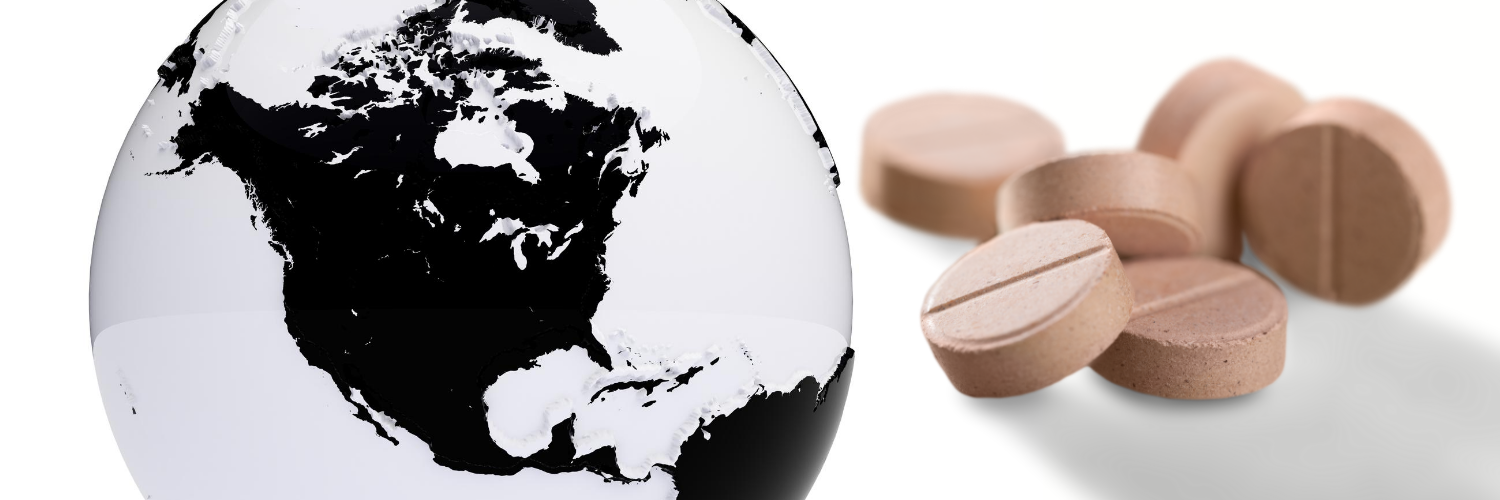7 Ways Seniors Can Avoid Online Pharmacy Scams

Remember how terrifying the thought of quicksand was when we were kids? As John Mulaney said, quicksand is not as prevalent as cartoons taught us it would be. The real quicksand, it turns out, is the internet, which has holes a-plenty that can devour even the savviest consumer. Online pharmacies are one of these holes. There are countless counterfeit online pharmacies. According to the Partnership at Drugfree.org, as many as 36 million Americans have purchased prescription drugs without a valid prescription (a telltale sign of a counterfeit pharmacy). “Rogue pharmacies,” as we call them, can pop up under one name, disappear, and reappear days later under a new pseudonym. They are out to steal sensitive financial information (at worse) and peddle counterfeit medications (at worst).
Patients looking for lower-priced drugs online don’t deserve this kind of trickery. PharmacyChecker works to ensure consumers don’t encounter this kind of perilous online quicksand by monitoring online pharmacies and accrediting them appropriately. We make sure you only buy from pharmacies that have licenses and require valid prescriptions.
Seniors are the most susceptible to these types of scams. This is mainly because people above the age of 65 are more likely to need medication, maybe even several kinds of daily medication. According to the Kaiser Family Foundation, 89% of adults over 65 report taking at least one medication. Nearly one quarter (23%) of those seniors taking medication reported finding it “difficult” to afford it. This difficulty leads to the one great cheap-ifying destination: the internet, with its vast pots of quicksand.
Here are a few ways consumers can avoid online pharmacy scams.
1. Find and click the accreditation seal.
Any good online pharmacy worth their salt will have a visible seal of accreditation from an association like CIPA (the Canadian International Pharmacy Association) or an independent company like PharmacyChecker. Counterfeit pharmacies sometimes try to copy these seals in order to look more reputable. In order not to be fooled, you can do two things:
-
Click the seal. A legitimate seal will direct you to information hosted on PharmacyChecker, CIPA, or another reputable pharmacy accrediting website.
-
Look at the date on the seal. The PharmacyChecker seal changes each day to match that particular day. A duplicate seal is usually a screenshot (an immovable image grabbed from another pharmacy) or a similarly stolen Jpeg. If the date on the seal does not match the current date, it is likely a fake seal.
-
You can also type in the name or URL of your online pharmacy to verify whether it is accredited by PharmacyChecker here.
Here’s a sample version of the PharmacyChecker Seal:
2. Call the number listed on the website.
One of many standards PharmacyChecker requires of an accredited online pharmacy is active customer service. Like the pharmacy down the street, the online pharmacy should have a licensed pharmacist available to speak directly to the customer. A rogue online pharmacy will not be savvy enough to set up a working (and actually helpful) customer service line. Call the number listed and see if someone answers.
3. Talk to a real person. A REAL person.
Not a recording or a bot. Talk to a person related to the pharmacy. If you can, ask them a few questions. Online pharmacies are aware that their industry is plagued by scammers. They will be patient with your questions. You can even speak directly to a pharmacist. Again, if you can do it at a regular pharmacy, you should also be able to do it at an online pharmacy.
4. Look for reviews of the online pharmacy.
Perhaps the easiest way to check for scams, customer reviews are the internet’s best resource. TrustPilot.com and Sitejabber.com are great resources for finding websites you can trust.
5. Ask your doctor about it.
When in doubt, phone a friend, right? In this case, calling your doctor may help because your doctor will have experience with online pharmacies. Not to boast, but PharmacyChecker does get attention from doctors themselves, who have said that they point their patients towards PharmacyChecker when prescriptions are too expensive. Recently, a medical practice manager wrote in a review of our site:
I [have been] the manager of a cardiology practice for 17 years. We very often advise our patients get their medications, [which] they cannot afford at US prices, from Canada. I personally give out the pharmacychecker.com information to them and they are able to set up an account and obtain their medications.
6. Make sure the website asks you for a prescription.
Perhaps the most important sign you’re dealing with a sketchy operation. A rogue online pharmacy is not looking after your health. It is looking to take your money and walk away. (Or, more accurately, disappear into the ether.) Therefore, it will not ask for a prescription.
This should be extremely suspicious. Pharmacists and doctors work very hard to ensure the right patient gets the right treatment. Any reputable pharmacy will request a prescription. If you can complete a transaction without offering up your script, abort the situation.
7. Ensure the pharmacy is scrupulous.
An accredited online pharmacy would never risk its reputation by selling prescription opioids, depressants, or stimulants. If the pharmacy sells Adderall, a prescription drug that easily finds its way out of the doctor-patient system, don’t purchase from it. They’re most certainly not accredited by PharmacyChecker. Check out the PharmacyChecker accredited ones here.





